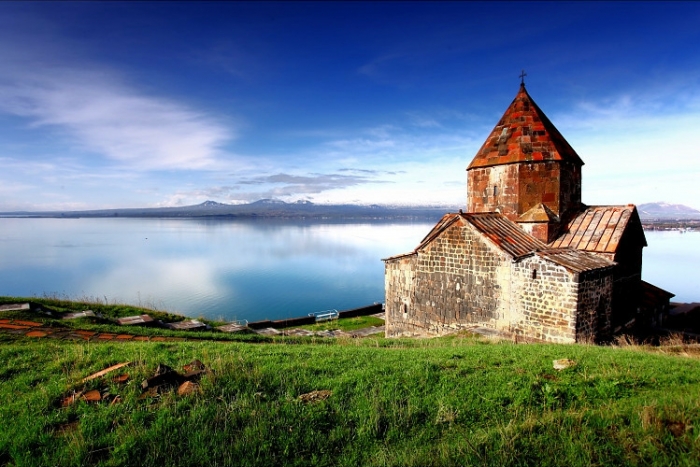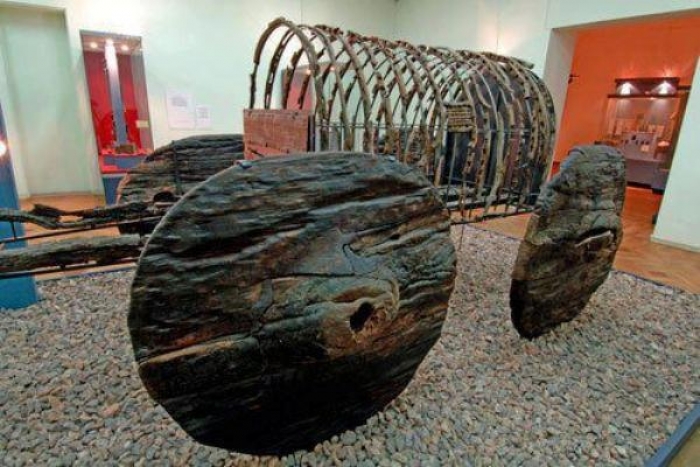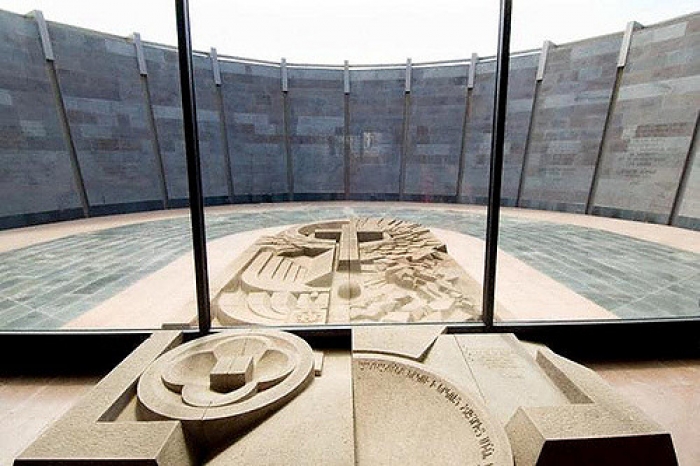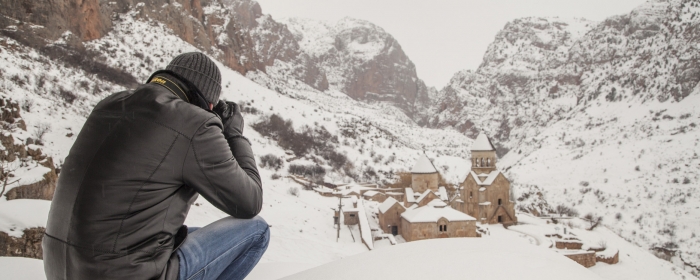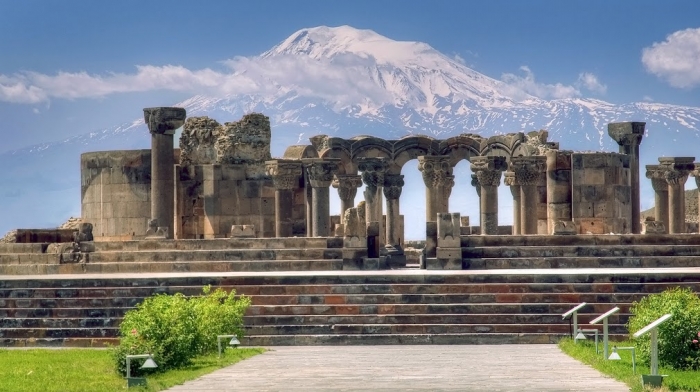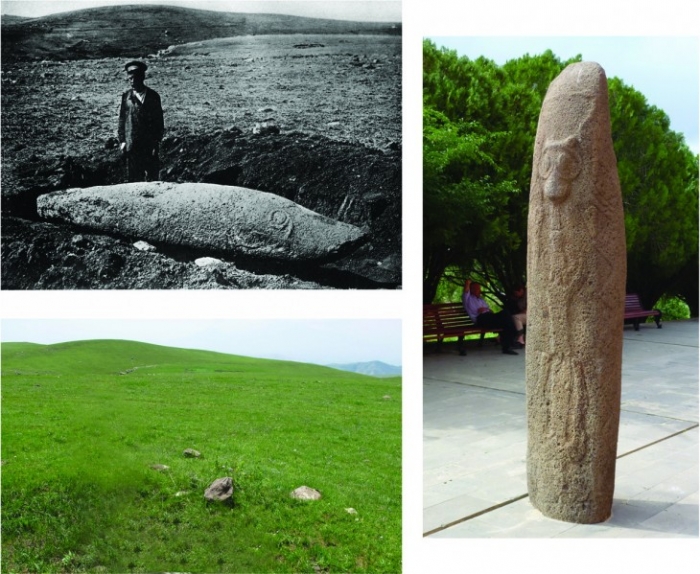Vishap
Vishap (III-II C.BC) is translated into Armenian as a dragon and the word dragon stone stands for the Armenian Vishapaqar.A large number of menhirs (dragon stones) have been found in the territory of Armenia, particularly in Geghama Mountain range districts, to the north-east of the Sevan Basin, on the slopes of the Aragats Mount, in Garni village, in the basin of the River Tchorokh (Armenian Highland).
There are more than 150 dragon stones on the Armenian Highland a unique representation of the Armenian ancient culture of worship and beliefs. It is believed that vishapakar symbolized the power and bliss of nature, the protector of agriculture and irrigation, as well as it stood for the stone idol of the Water Worshipdeities. It is supposed that vishapakars were carved out of a single piece of a basalt that were put at the sources of natural and artificial channels and springs, on the shores of lakes and water reservoirs.
In general, they are 150-550 cm in length having a shape of fish with carvings of animals, birds and a life tree on them. Dragon stones were also erected inside and on the mausoleums by symbolizing the idea of reincarnation. According to scholars, dragon stones were dedicated to the Armenian Pagan Goddess Astghik, the protector of love, fertility, and waters. According to the Armenian scholar G.Ghapancyan, vishapakar embodied the dying and reincarnating deity of Ara Geghecik.



